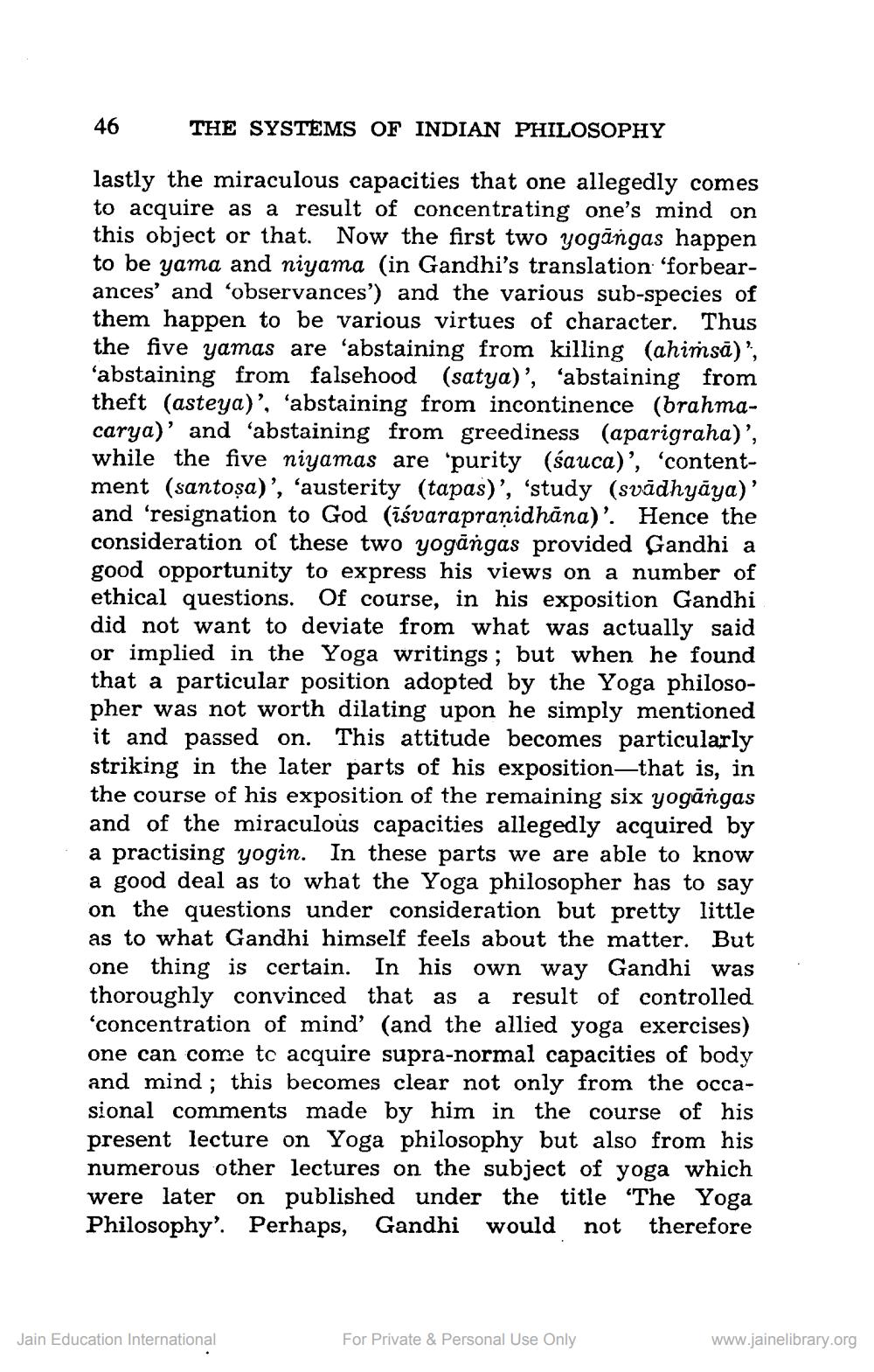________________
46
THE SYSTEMS OF INDIAN PHILOSOPHY
lastly the miraculous capacities that one allegedly comes to acquire as a result of concentrating one's mind on this object or that. Now the first two yogāngas happen to be yama and niyama (in Gandhi's translation 'forbearances' and 'observances') and the various sub-species of them happen to be various virtues of character. Thus the five yamas are 'abstaining from killing (ahimsā)', 'abstaining from falsehood (satya)', 'abstaining from theft (asteya)', 'abstaining from incontinence (brahmacarya)' and 'abstaining from greediness (aparigraha)', while the five niyamas are 'purity (sauca)', 'contentment (santoșa)', 'austerity (tapas)', 'study (svādhyāya)' and 'resignation to God (iśvarapraạidhāna)'. Hence the consideration of these two yogāngas provided Gandhi a good opportunity to express his views on a number of ethical questions. Of course, in his exposition Gandhi did not want to deviate from what was actually said or implied in the Yoga writings; but when he found that a particular position adopted by the Yoga philosopher was not worth dilating upon he simply mentioned it and passed on. This attitude becomes particularly striking in the later parts of his exposition—that is, in the course of his exposition of the remaining six yogāngas and of the miraculous capacities allegedly acquired by a practising yogin. In these parts we are able to know a good deal as to what the Yoga philosopher has to say on the questions under consideration but pretty little as to what Gandhi himself feels about the matter. But one thing is certain. In his own way Gandhi was thoroughly convinced that as a result of controlled 'concentration of mind' (and the allied yoga exercises) one can come to acquire supra-normal capacities of body and mind; this becomes clear not only from the occasional comments made by him in the course of his present lecture on Yoga philosophy but also from his numerous other lectures on the subject of yoga which were later on published under the title 'The Yoga Philosophy'. Perhaps, Gandhi would not therefore
Jain Education International
For Private & Personal Use Only
www.jainelibrary.org




